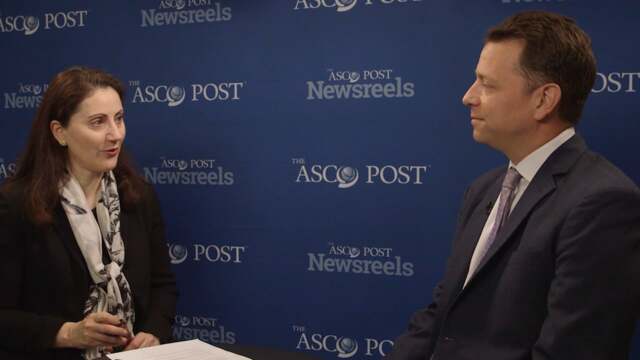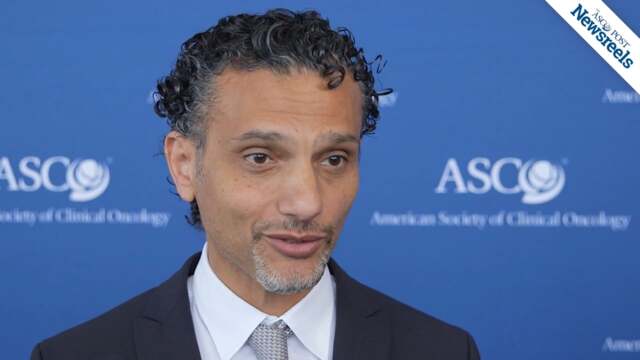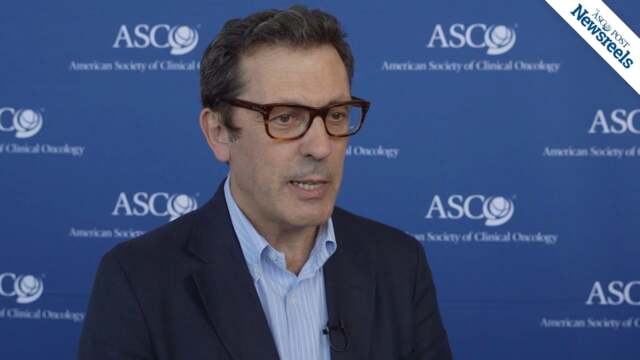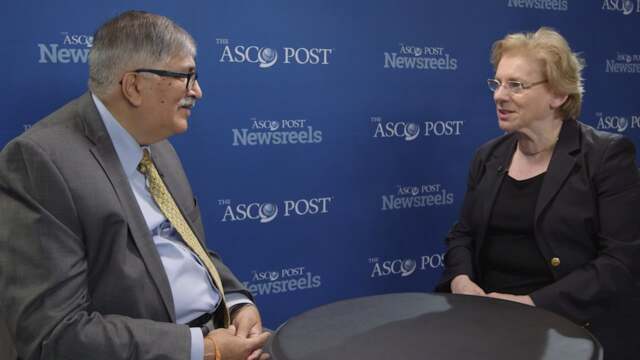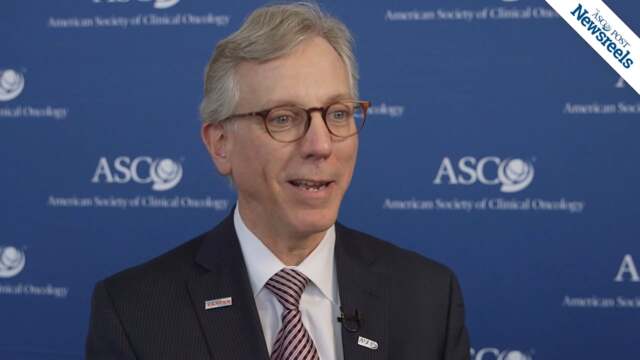Michele Cavo, MD, on Multiple Myeloma: Results From a European Myeloma Network Trial (Italian Language Version) 
2016 ASCO Annual Meeting
Michele Cavo, MD, of the Seràgnoli Institute of Hematology, Bologna University School of Medicine, discusses in Italian results from this phase III study of upfront autologous stem cell transplantation vs novel agent-based therapy for multiple myeloma (Abstract 8000).

To see the English language version of this video, please
click here.
Vali A. Papadimitrakopoulou, MD, of MD Anderson Cancer Center, and Gideon Michael Blumenthal, MD, of the US Food and Drug Administration, discuss milestone analyses with immune checkpoint inhibitors, targeted therapy, and standard therapy in metastatic non–small cell lung cancer trials submitted to the FDA (Abstract 9010).
Salah-Eddin Al-Batran, MD, of the Institute of Clinical Cancer Research and Nordwest Hospital, discusses findings from this international phase II study of epirubicin, oxaliplatin, and capecitabine with or without IMAB362, as first-line treatment of gastric and gastroesophageal junction adenocarcinoma (Abstract LBA4001).
Luis G. Paz-Ares, MD, PhD, of the Hospital Universitario 12 De Octubre, discusses study findings on adding necitumumab to gemcitabine and cisplatin chemotherapy in the first-line treatment of patients with stage IV squamous non-small cell lung cancer.
To see Dr. Paz-Ares discuss this video in Spanish, please click here.
Rakesh Chopra, MD, of the Artemis Health Institute, and Mary Gospodarowicz, MD, of Princess Margaret Hospital, discuss oncology from an international point of view.
Newly elected ASCO President Daniel F. Hayes, MD, of the University of Michigan Health System Comprehensive Cancer Center, talks about his vision for the society during his tenure.

